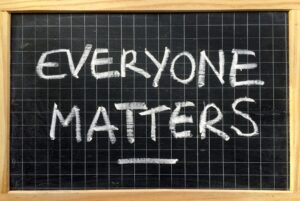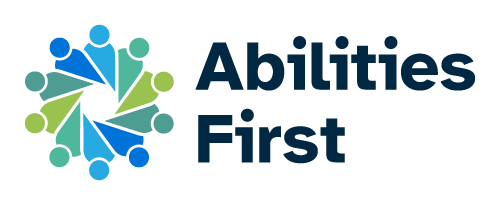
What is Inclusion?
What is inclusion? According to Merriam-Webster, the definition of inclusion is “the act of including: the state of being included.”
“Inclusion” can mean different things to different people. Circumstances and perspectives can get in the way of people being included. Preconceived ideas can influence opinions and make it difficult for people with developmental disabilities to be fully included in our community. As a society, we’re transitioning from a time when people were encouraged to put their child with a developmental disability in an institution when it was born to now wanting individuals to experience full inclusion in all aspects of their lives. It’s an adjustment for society as well as the families and individuals with developmental disabilities.
As human beings, almost everyone wants to be included, have friends, a job, live independently, and feel welcome and valued in the community. We want to “fit in.”
All people with developmental disabilities should be able to live the life they choose.
When we embrace inclusion, it’s important to advocate for people with developmental disabilities to live the life they choose. This starts with asking questions. “What do you want to do after high school? Where do you want to work? Do you want to go to college?” Sound familiar? These are questions we ask our children as we prepare them for the world. Ask them their hopes and dreams. Everyone needs the opportunity to DREAM BIG! Then, listen to their answers, and help them succeed.
Everyone has opportunities to experience acceptance as a community member.
In order for everyone to experience acceptance as a community member, we must increase understanding of the importance of inclusion for individuals with developmental disabilities. There will be challenges along the way. Even today, there is a stigma that exists in this country that individuals with a developmental disability can’t work or live independently. These individuals should be able to experience full inclusion in day-to-day activities, such as riding a bus, driving a car, or going to work. For this to happen, there may need to be accommodations made to make it easier. For success for all members of the community, it’s important for individuals with developmental disabilities to be treated fairly and the same as people without a disability.
People can choose where they live, learn, work, and play.
It’s important to receive input from individuals on what they need to be successful. It’s our job to remove physical and psychological barriers that can make it difficult for someone to fully participate in our community. Inclusion in the classroom means that students are able to learn alongside their peers, not separated in a “special” classroom. When children are fully included at a young age, it fosters understanding and acceptance that can follow them the rest of their lives – eventually changing what our community looks like as a whole. In the workplace, all employees benefit when employers include people with developmental disabilities in their workforce. When individuals with developmental disabilities are able to work for a competitive wage in a position that matches their interests, strengths, and abilities, they gain independence, self-esteem, and friendships. Recreational opportunities open another path for fully participating in the community. Participating in sporting activities can increase self-confidence, understanding, happiness, creativity, muscle strength, flexibility, balance, coordination, and an enhanced quality of life.
People are supported for success.
When people are supported for success and they see that someone believes in them, they have a much better chance of succeeding. Encouragement goes a long way, but sometimes they may need help. Universal designs in equipment offer greater independence and the ability to be used by as many people as possible. Support and service coordinators support offer tools and resources to help people succeed in living the life they choose – not one that someone else wants for them. TheAmericans with Disabilities Act (ADA) protects the civil rights of people with disabilities. Through the ADA, many barriers have been removed or reduced, which has helped change perceptions in our country in the past 40 years.
All people should have opportunities for meaningful relationships and experiences.
Friendships, boyfriends or girlfriends, spouses, and/or being a parent are an important part of our daily lives. Many times, we lean on our family and friends for emotional support, a boost to our self-esteem, and general well-being. The more someone is included in their community, the more of chance they have to make friends regardless of a disability. When this happens, people develop understanding and build friendships with others who have different life experiences, and everyone grows.
People recognize that inclusion benefits everyone involved by bringing together different abilities and perspectives to make a greater whole.
It’s important to the health of a community to see what abilities and strengths people have rather than focusing on someone’s disability. When schools adopt inclusion in the classroom, it teaches children at a young age about respect for differences in people’s abilities. Over time, this can change our society. By employing people with disabilities, companies see financial benefits both in new employees as well as new customers who were previous unemployed or underemployed (Accenture). Ultimately, we will be stronger as a society when we accept everyone as part of our community.
So, what is inclusion? Being welcome in schools, businesses, workplaces, recreational activities, and having the accommodations (if needed) to be able to live, learn, work, and play the same as everyone else. Join us in helping everyone feel welcome! For more information, contact Abilities First today at (417) 886-0404!

